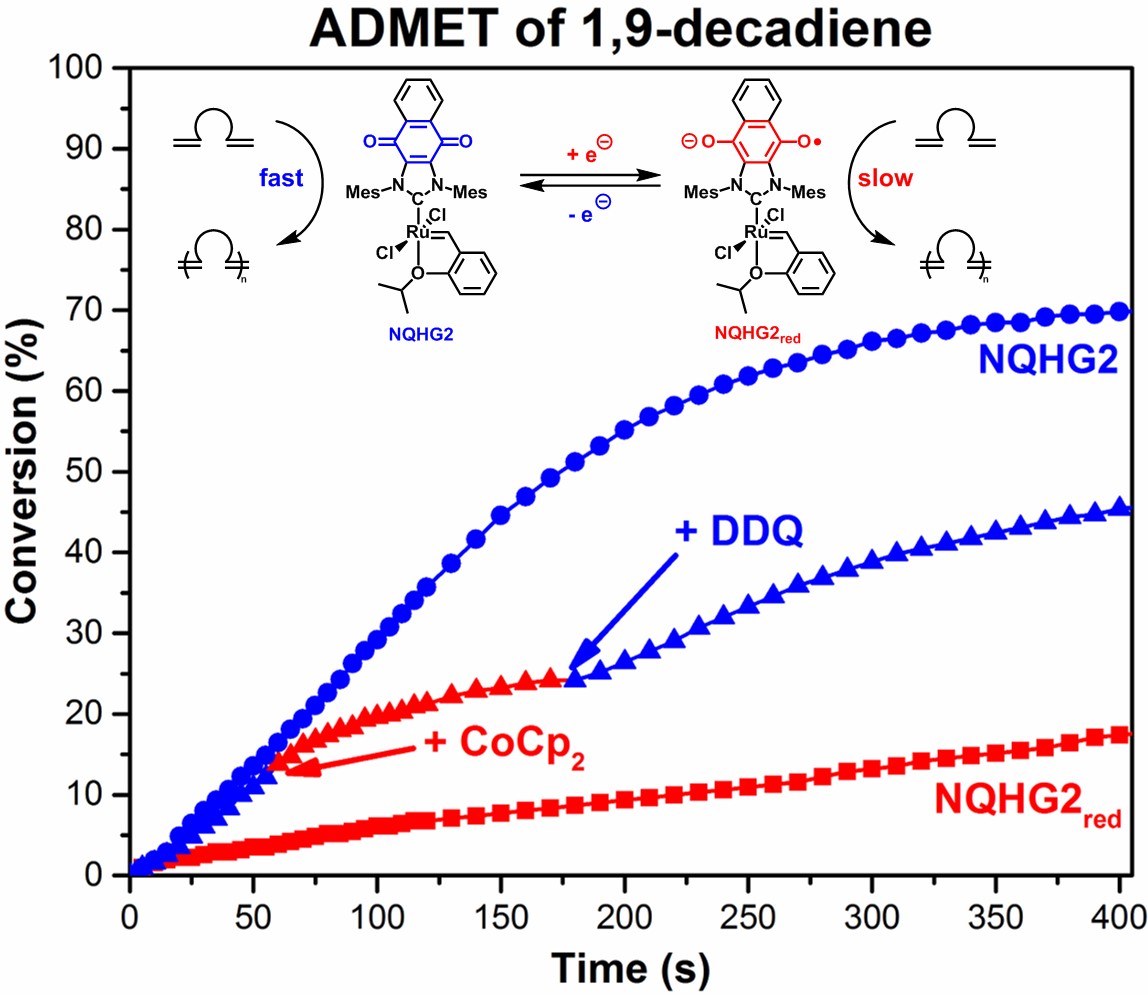|

|
| Type |
Oral Presentation |
| Area |
Oral Presentation for Young Polymer Scientists |
| Room No. |
Room 325C+D |
| Time |
THU 09:40-: |
| Code |
POLY.O-5 |
| Subject |
Redox-Switchable Cross Metathesis and Acyclic Diene Metathesis (ADMET) Polymerization |
| Authors |
Yeonkyeong Ryu, Christopher Bielawski1,*
Chemistry, Ulsan National Institute of Science and Technology, Korea
1Center for Multidimensional Carbon Materials, Institute for Basic Science, Korea
|
| Abstract |
|
Acyclic diene metathesis (ADMET) polymerization grant the opportunity to synthesize precisely defined polymers. One of the limitations of this method is the lack of control on the molecular weight of the final products. We reasoned that the use of redox switchable catalysis can be used to achieve enhanced levels of control. Herein, a Ru(II)-based redox-switchable catalyst, containing a quinone-annulated N-heterocyclic carbine is used in order to modulate the reactivity of ADMET polymerization by using redox agents (CoCp2 and DDQ). The oxidation state of the ligand, switched by reducing and oxidizing agents allow us to control directly the kinetic of the reaction. Whereas the neutral form of the complex catalyzes the reaction (in the same rate as commercially-available catalyst), the reduced complex inhibits the reaction by a decrease in the rate constant by around one order of magnitude, compared to the neutral form. Furthermore, the molecular weight of polymers by ADMET polymerization with this redox-switchable catalysis was related to the same chemistry as mentioned before. In this work we investigate the cross metathesis (CM) reaction because it shares the fundamental mechanism with ADMET polymerization that will be discussed in this work where NQHG2 was used as a catalyst and we will show that is possible to modulate the molecular weights of the final products. |

|
|
| E-mail |
ryk5674@gmail.com |
|
 122nd General Meeting of the KCS
122nd General Meeting of the KCS
 122nd General Meeting of the KCS
122nd General Meeting of the KCS